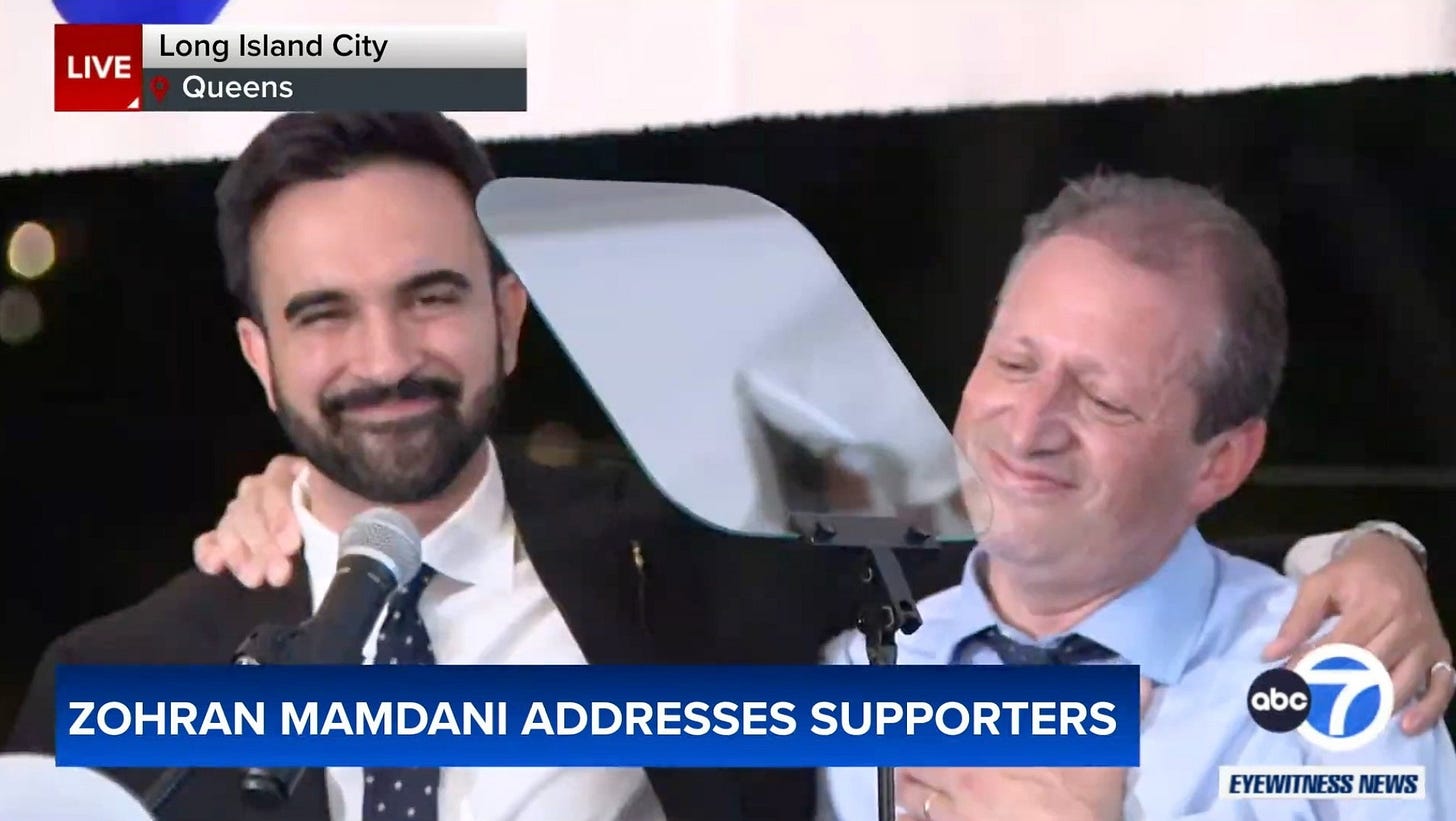Reading, Watching, Listening 6/27/2025
A few words about Hope and Change
I’m bringing it back! Every Friday morning, I’ll be here with some new musings, good ‘ol self-promotion, and recommendations based on what I’ve been consuming over the last week. The post is ostensibly for paid subscribers, with the front sections available to all, and the recommentations section visible to anyone who wants to spring for a sub. If you’d like to access all the work on this newsletter, or would like to support my work in general, consider a subscription. Every one is much appreciated.
I’ll admit, I’ve always been a bit unconfortable with the fact that so many Canadians focus our attention heavily on American politics. We’re much more likely to know the ins and outs of small races, scandals, and even government functions in the US than those things here at home. I sometimes wonder whether our relentless interest in our neighbours to the south, especially among those on the left, has prevented a broad, new progressive political movement from taking hold in Canada. I don’t diminish my own responsibility in this at all, which is the main source of my unease in all this.
Zohran Mamdani’s Democratic primary win in the race for New York mayor has become a real lightning rod, both as a great underdog story in politics, but as a demonstration of what an avowed democratic socialist can accomplish electorally. The race has opened people’s eyes to the strategizing opportunities made available by ranked choice voting, and has been a beacon of hope amid an authoritarian crackdown by the Trump administration on its lackeys. It has also made plain divisions within the Democratic Party, not just ideologically, but over how the party should respond to growing crises of American governance in the wake of their November defeat. It has become a battle of establishment vs. new voices, and older generations of leadership vs. younger. It has also been demonstrative.
One of the great difficulties in approaching Canadian politics is that it has been designed in just about every way to foster a somewhat superficial sense of propriety. Superficial, but unavoidable. Perception is reality, and for most Canadians, the reality of government is that it just kinda works. Even when it doesn’t. Even when they complain that it doesn’t. Even when they’re incensed by various politicians. There remains a perception—or a conception, perhaps—that politics ought to be boring, and that the more boring, the more Canadian. Those Convoy-heads are a different breed, but they are far from the majority across the country, and to the extent that they’ve been able to win over some tepid support from their countrymen, it often shows up, for example, in questions over whether the boring Canadian government got a little to not-boring in sidestepping the Charter to go after them. This view of Canadian politics as boring becomes a self-fulfilling prophecy, particularly when people on the left buy into it. We end up negating any notion that Canadians deserve a more dynamic politics, in which true ideological battles are fought, and questions about what kind of country we really want to be are left to a lot of corrupt or otherwise lazy leaders to define.
But the thing is, Canadian politics, though it encompasses plenty that’s exciting, or odd, or simply fascinating, well… Canadian politics is still basically boring. For a moment there, the successive resignation of Trudeau, the elevation of Mark Carney, and the electoral collapse of the Conservatives under Poilievre did make for some good TV, but it hardly represented a substantive debate over Canadian political identity. It ended up being, for the most part, an uncomplicated expression of patriotism against American incursion, with a nationalism defined by external threat and a whole lot of companies running TV ads touting how Canadian they are. The differences between Poilievre and Carney, in the end, were less about their particular ideological or policy differences, than their style, personality, and temperament. Poilievre was successfully cast as an unpleasant weirdo who might sell out the country, while Carney was the safe, boring banker. The technocrat who knows what he’s doing, and can run the country without much need for oversight. As though such a thing is possible. And still I find myself feeling roughly the same way about him: that he’s a Liberal, but actually a conservative of a certain stripe, holding onto some aspects of an older, post-war Canadian progressive consensus. This is not an inspiring politics. Dulling, more like.
Mamdani’s win in New York and his coalitional effort with fellow candidate Brad Lander to unseat Cuomo are what inspiration looks like. I remember back in 2008, watching Barack Obama’s victory speech with a sense of wonder, fully believing his message of “hope and change” as embodied by his demeanour, his policy proposals, and the fact that a black man was elected President of the United States. In subsequent years, I found Obama alternately praiseworthy and disappointing. That’s fine, politicians aren’t to be blindly trusted or supported in any event. The Mamdani campaign has been something else. The hope it inspires in me is not related to speechifying, though Mamdani is good at that. Rather, what he has demonstrated is that with some degree of ideological force, and a relentless focus on clear policy messaging and meeting constituents at their level, a better kind of electoral political action is possible. There is no more progressive consensus anymore, those days long gone. But there can be a new one, Mamdani himself, as well as his partnership with Lander, have demonstrated to me the real power of a politics built, not on dogmatic adherence to ideology or in-group approval, but on investing emotionally and materially in the public good, through public works, universal programs, and visionary ideas about how to make the places we live safer, more dynamic, and more liveable. It’s a politics that, in my opinion, can play well anywhere, even in Canada, where politics is generally meant to be boring. It doesn’t have to be.
If you’re reading this, there’s a good chance you’re already a free or paid subscriber, or you’ve clicked on links I’ve shared to my work via other platforms, but it’s been a so long since I’ve done one of these posts, I thought I might go a little heavy on the self-promotion and share some of the pieces I’ve put out recently.
With the release of 28 Years Later I published two pieces here on the blog that I’m quite proud of, one about the franchise’s legacy of being at the forefront of a different kind of digital cinema, and another about the way 28 Years Later brings the human experience back down to one of narrative and storytelling.
I also wrote this piece for the blog about the amazing movie Green Room and how I saw it reflected in ICE’s brief detention of Brad Lander at immigration court.
Also, while it’s over a month ago now since it was published, I wanted to share my piece for Slate about historian Chris Kempshall’s great book Star Wars: The Rise and Fall of the Galactic Empire, an in-universe history of how the Empire came to be, how it was defeated, the mistakes made by the rebellion in the process, and the lessons to be learned from such movements of history (even fictional history).
Reading, Watching, Listening
Here are some things I’ve consumed and enjoyed over the last week (or more).






